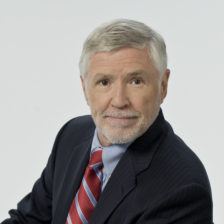How We Help Social Security Disability Claimants
At the Law Offices of Thomas E. Bush, we focus on representing claimants at their Milwaukee Social Security disability hearings.
That means we assist people who have had their disability claims denied twice – once at the application level and once at the reconsideration level. We help these claimants by:
- Coming up with a winning theory
- Obtaining medical documentation
- Preparing for the hearing
- Presenting a persuasive case
1. Coming up with a winning theory
We begin to evaluate a new case by reviewing the reason for denial. It is not always clear from the denial letter’s language why a claim was rejected, but many times we can deduce the reason.
Next we analyze the claim’s legal and medical issues and try to think of ways to win the case that the claimant may not have considered.
Finally, we evaluate the claimant’s chances of survival in the real world of work (as opposed to the artificial one concocted by SSA). If we are convinced that the claimant is never going to work again, we work hard to come up with a theory of the case that will convince SSA to award benefits.
2. Obtaining medical documentation
Many claimants, especially those with complicated medical histories, fail to provide a complete list of medical providers. So first we make sure that the hearing exhibit file contains all the relevant medical evidence.
Next we gather medical evidence that is relevant to the claimant’s disabling impairments but does not duplicate what is already in the hearing exhibit file.
If medical records exist that detract from our theory of the case, we refine our theory to explain those records.
The most important medical evidence is usually opinion evidence. Using an extensive list of medical source statements that we created and refined over the years, we get an opinion from the claimant’s doctor about the nature and severity of the claimant’s impairments — symptoms, diagnosis, prognosis, physical or mental restrictions, and what the claimant can still do.
Educating the claimant’s doctor about the treating doctor’s role in a disability case is an important aspect of this task, and we have pre-drafted memoranda that help.
3. Preparing for the hearing
When the hearing date is approaching, we assemble the medical exhibits, verify that we have identified and are prepared to address all of the issues in the case, and prepare the witnesses and claimant to testify.
Witness preparation is one of our most important … and difficult … jobs that we perform. Many common-sense arguments that seem logical to witnesses and claimants are irrelevant to SSA’s disability determination.
For example, when asked why he’s unable to do a sit-down job, an unprepared claimant may reply that he’s not qualified for sedentary work, there aren’t any unskilled sedentary jobs available or that he’d never get a job like that. Considering the small size of the unskilled sedentary occupational base, these aren’t bad answers. But the judge may view any answer not immediately addressing physical or mental capacity for sedentary work as an implied admission that the claimant has the capacity for unskilled sedentary work.
Preparing claimants and witnesses to testify is a big job with too many elements to explain here. Know that we have prepared hundreds.
4. Presenting a persuasive case
In a nutshell, at the hearing I give an opening statement, question the claimant and witnesses, and cross-examine any vocational expert. If the judge signals that an issue exists, I address the problem.
Claimant testimony is the heart of the hearing, and is frequently decisive. I take the claimant through his background, detail his work experience, establish the claimant’s current medical condition, fully develop the current medical treatment, and most important, elicit a detailed description of the claimant’s physical symptoms. Lastly, I ask the claimant about his activities of daily living.
Next I have several witnesses corroborate and add to the claimant’s testimony. I emphasize their observations and limit their conclusions, leaving it to the judge to draw his own. Obtaining before and after testimony from witnesses is frequently an effective way to make the case.
More information on these four hearing tasks may be found in the Library located at the bottom of my home page.
Experience matters
I have been preparing and presenting Wisconsin Social Security disability cases for over three decades, and have learned what works in a hearing and what does not.
If you need representation at a disability hearing, I would be happy to evaluate your claim at no charge. If your claim meets our office standards, I will put my three decades of experience to work on your behalf.
You may call 800-924-0465, e-mail me, or use the denial evaluation form to the right. I hope I can be of assistance.
Tom Bush
310 W. Wisconsin Ave., Suite 930E
Milwaukee, WI 53203
414-765-9333 direct
414-765-0459 fax
